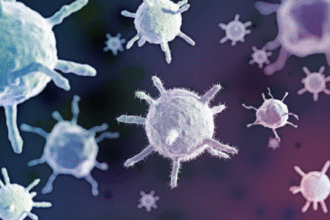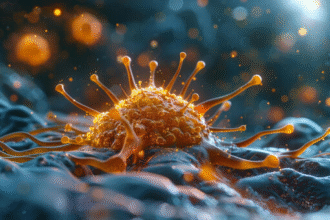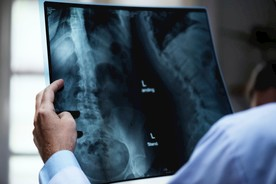Key Points
- Inherited deficiency of galactose-1-phosphate uridyltransferase (GALT), leading to toxic accumulation of galactose-1-phosphate and galactitol.
- Manifests in the neonatal period with feeding intolerance, hypoglycemia, jaundice, hepatomegaly, and risk for E. coli sepsis.
- Early removal of dietary galactose (lactose-free formula) prevents acute complications and improves long-term outcomes.
- Lifelong dietary restriction with monitoring of growth, development, and ovarian function in females is essential.
- Newborn screening enables prompt diagnosis and dietary management, reducing mortality and morbidity.
Introduction
Galactosemia is an autosomal recessive disorder of galactose metabolism caused by mutations in the GALT gene encoding galactose-1-phosphate uridyltransferase. Classic galactosemia (Type I) is the most severe form, leading to accumulation of galactose-1-phosphate and galactitol, which cause multi-organ toxicity, particularly in the liver, lens, and central nervous system.
Epidemiology
- Incidence: 1 in 30,000–60,000 live births worldwide; incidence varies by population.
- Detected by newborn screening in most developed countries.
- No gender predilection; carrier frequency ~1 in 100.
Pathophysiology
- Dietary lactose is hydrolyzed to glucose and galactose.
- Galactose is phosphorylated to galactose-1-phosphate by galactokinase.
- GALT catalyzes conversion of galactose-1-phosphate and UDP-glucose to UDP-galactose; deficiency leads to accumulation of galactose-1-phosphate.
- Excess galactose is reduced to galactitol by aldose reductase, causing osmotic damage (e.g., cataracts).
- Toxic metabolites impair hepatocytes, renal tubular cells, and neurons.
Clinical Presentation
Neonatal Period
- Feeding difficulty, vomiting, and poor weight gain.
- Hypoglycemia due to impaired gluconeogenesis.
- Jaundice, direct hyperbilirubinemia, hepatomegaly.
- Increased risk of E. coli sepsis.
Infancy and Childhood
- Cataract formation from galactitol deposition in the lens.
- Progressive hypotonia and developmental delay if untreated.
- Renal tubular dysfunction: aminoaciduria, acidosis.
Long-Term Complications
- Speech dyspraxia and learning disabilities.
- Gonadal dysfunction: premature ovarian failure in females.
- Bone health: osteopenia from chronic metabolic imbalance.
Diagnostic Evaluation
- Newborn screening: elevated total galactose and galactose-1-phosphate.
- Reducing substances in urine.
- Enzyme assay: low or absent GALT activity in red blood cells.
- Genetic testing: confirmation of pathogenic GALT variants.
- Supportive labs: elevated liver enzymes, indirect hyperbilirubinemia.
Differential Diagnosis
- Other neonatal cholestatic disorders (e.g., biliary atresia).
- Hypoglycemia from glycogen storage diseases.
- Other inborn errors of carbohydrate metabolism (e.g., fructose intolerance).
Management
- Dietary therapy:
- Immediate switch to lactose-free (soy or elemental) formula.
- Lifelong avoidance of galactose-containing foods (dairy products).
- Nutritional monitoring:
- Ensure adequate intake of calcium, vitamin D, and other nutrients.
- Treatment of complications:
- Cataract extraction if visually significant.
- Management of sepsis with prompt antibiotic therapy.
- Monitoring:
- Regular assessment of growth, liver and renal function, bone density, and neurodevelopment.
Nursing Considerations
- Educate caregivers on reading food labels and avoiding hidden galactose sources.
- Monitor feeding tolerance, hydration, and weight gain weekly in infancy.
- Perform regular developmental screenings and coordinate early intervention services.
- Reinforce adherence to dietary restrictions and supplement regimen.
- Support psychosocial needs of the family with genetic counseling and support groups.
Prognosis
- Excellent survival with early diagnosis and strict dietary management.
- Risk of long-term neurodevelopmental, speech, and reproductive sequelae despite adherence.
Patient Education
- Emphasize lifelong nature of dietary restrictions and the need for lifelong follow-up.
- Provide resources on galactose-free products and support networks.
- Recommend genetic counseling for families for carrier testing and future pregnancies.
References
- Fridovich-Keil JL, Walter JH. Classic Galactosemia. In: Adam MP, Ardinger HH, Pagon RA, et al., editors. GeneReviews® [Internet]. Seattle (WA): University of Washington, Seattle; 1993–2025.
- Welling L, Rubio-Gozalbo ME, Bakker HD, et al. Assessment of dietary galactose intake in infants with classic galactosemia at diagnosis and during follow-up: Implications for guidelines. J Inherit Metab Dis. 2017;40(5):735–741.
- Donnell GN, Berry GT, Potter JL, et al. Outcome of primary dietary treatment of classical galactosemia: a review of 54 cases. J Pediatr. 1985;106(4):585–589.
- Ficicioglu C, Levy HL, Wear ML, et al. Long-term outcomes in classic galactosemia: Cognitive, neurological, and social functioning. J Pediatr. 2020;223:196–202.







